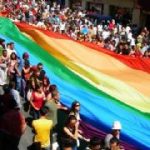Militancy for what?
The lack of political involvement of the GLBT community makes the fight for gay rights difficult
It is undeniable that militancy is responsible for most of the achievements that today guarantee more justice and equality for GLBTs. The approval of federal laws that criminalize homophobia and allow civil partnerships between people of the same sex are the main demands of the moment. But does the average gay know this? Does it interest him to know that there are people who fight for equal rights? Everything indicates not.
Gays and lesbians interviewed by The Cape they know the civil partnership project and know that homophobia is a prejudiced attitude, but the level of understanding on these topics is low. Most call the partnership "gay marriage" and associate it with Marta Suplicy, author of the first bill to address the issue, in 1995. None of them knew that Marta's bill, which spoke of civil union, was modified by Roberto Jefferson (the one responsible for the "Mensalão" allegations) and has been in progress for 12 years. Nor is the project outdated, mainly because judicial decisions were more advanced than the legislative ones.
As for PLC 122/2006, a bill by former federal deputy Iara Bernardi (PT-SP), the acronym is strange. Despite being the main flag of militancy, common GLBTs, who are neither opinion makers, nor activists, nor involved in the defense of sexual rights, are unaware that the project has already been approved by the Chamber of Deputies with an agreement of leaders and that is currently being processed in the Senate, under the report of Senator Fátima Cleide (PT-RO).
Few words
Hugo Guimarães is a student at the Faculty of Technology of São Paulo and a writer. His first book, Gay Underground Poetry, will be published this semester. It is a modern and intelligent work, which has been well received by specialized critics. Hugo, however, says little when asked about civil marriage or laws to combat homophobia. "Gay marriage to me is not important. I believe the law [PLC 122] will reduce prejudice and violence against gays." And that's it. If he votes for pro-GLBT political candidates? Hugo says yes, "when I remember the numbers".
Similar answers are provided by public servant Cláudia Oliveira. Interestingly, she tries hard to stay away from these achievements. Lesbian and supporter of socialist ideas, she says that she only votes for the PT and that, if it weren't for family repression, she would be a militant. "But I can't appear on television saying I'm a lesbian and then everyone in the neighborhood looks askance," she says. She says she wants a civil partnership, but that she will not celebrate it with her partner, who she has been dating for 14 years. "No need, we know how we feel. Besides, it could cause embarrassment if someone from my work or a relative found out."
Regarding the law that criminalizes homophobia, she is quick: "If it's to defend gays, why not?" Cláudia does not believe in the mobilizing power of politics. "When they come to power, they all only think about themselves."
The lack of anything to talk about is a symptom that these are not issues that mobilize Hugo and Cláudia. Enlightened and with several years of schooling, they have access to information, read a lot, travel and frequent environments where it is possible to talk about GLBT life with a certain freedom. However, they are little affected by the movement. And they are not alone.
Distant echoes
"I think I've read something", replies Michelly Camargo when asked about PLC 122. A risk analyst at an insurance company, Michelly is proud to have been to all the stops in São Paulo. “I love the crowd and being under the flag.” She doesn't remember what the songs on the charts were. In fact, none of them. About homophobia, she says she "heard it spoken". "I know Beto de Jesus from television and from famous gays I only remember him, Leão Lobo and Léo Áquila."
Michelly has a vague notion of what is happening in the GLBT movement, but for her this is news that is too far from her daily life. "On a daily basis, I don't think about how much I'm discriminated against because, otherwise, I won't live. I know that my neighbors don't like me and that I could get beaten up in Paulista just because I have short hair and wear more masculine clothes, but I don't I don't go to any group and I don't believe that these people will be able to change the minds of those who hate gays."
Eliezer Lima, theater teacher, goes further. "I don't know of any NGO that works for gays, but if they do, they must live at the government's expense." He has lived with his boyfriend for five years, but says he doesn't mind a civil partnership. "If I haven't needed it until now, what's the point?" He says he has been discriminated against at work and in some restaurants, but he does not know that in his state, São Paulo, there is a law that punishes discrimination based on sexual orientation or gender identity.
Alienation
"A large majority of GLBTs are not aware of the importance of militancy – mainly because many live in social circles created by them and feel safe there", explains Igo Martini, from Grupo Dignidade, in Curitiba, and executive coordinator of Projeto Aliadas , from ABGLT. "The rich reject them because they have money and don't feel discriminated against. And it's true: with money and well-dressed you are welcomed in many places, even if it's to get the biba's money and then make a fuss when the customer goes although".
Regarding the reasons for this gap between the GLBT population and militancy, Toni Reis, president of the Brazilian Association of Gays, Lesbians, Bisexuals, Transvestites and Transsexuals, believes that a large part of the population is alienated. "This does not only happen with the GLBT community, but also in society in general and among other minorities. Alienation may be due to the fear of seeing their sexual orientation exposed", believes Toni. "If they came out, they would feel discrimination."
Beto de Jesus, who is currently the representative for Latin America and the Caribbean at the International Gays and Les-bians Association, has a similar opinion. "The fact that many GLBTs do not move towards the barbarity of violence that is committed against GLBTs themselves only indicates a state of complete alienation. That is, when the individual loses understanding of the world, becoming alienated or indifferent to segments important aspects of reality".
Irina Bacci, activist from the INOVA group, which works with GLBT families and defends human rights, believes that this alienation is a feature of the Brazilian reality, but that it cannot be generalized. "Unfortunately, this is a cultural problem in our country, which we only realize when we know the reality of our neighboring countries, where we see teenagers and young people involved in politics, in the fight for rights, whatever they may be. Here the The population still believes that society's problems are those of the State alone, that what doesn't directly affect them in the navel is not something they need."
Irina remembers that, in 2005, when she was collecting signatures for the approval of the civil partnership project, she heard many people say that they didn't care and that, therefore, they wouldn't benefit. "Since I wouldn't enjoy that right, I didn't need to fight."
Persistence
If those who benefit from the achievements of the GLBT movement seem to care little about the main flags, why military? Toni is quick to respond. "The leadership



